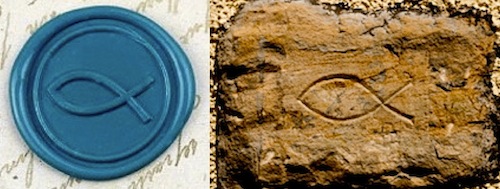Absolutely - but that is NOT what we do when asking a saint in Heaven to pray for us.
A I have posted several times already - "Pray" does NOT mean "worship".
In fact "Worship" is only a secondary definition. "Pray" simply means to ASK.
Definition of the word “PRAY”:
Merriam-Webster’s Collegiate Dictionary:
Full Definition of pray
transitive verb
1: entreat, implore —often used as a function word in introducing a question, request, or plea<pray be careful>
2: to get or bring by praying
intransitive verb
1: to make a request in a humble manner
2: to address God or a god with adoration, confession, supplication, or thanksgiving
Jesus PRAYED to people ALL the time . . .
(Matt. 5:46, Matt. 5:47, Matt. 6:27, Matt. 6:28, Matt. 7:3, Matt. 7:16, Matt. 8:26, Matt. 9:4, Matt. 9:5, Matt. 9:15, Matt. 9:28, Matt. 11:7, Matt. 11:16, Matt. 12:11, Matt. 12:29, Matt. 12:34, Matt. 12:48, Matt. 14:31, Matt. 15:3, Matt. 15:34, Matt. 16:9, Matt. 16:13, Matt. 16:15, Matt. 16:26, Matt. 17:17, Matt. 17:25, Matt. 18:12, Matt. 19:17, Matt. 20:21, Matt. 20:22, Matt. 20:32, Matt. 21:25, Matt. 21:28, Matt. 21:42, Matt. 22:18, Matt. 22:42, Matt. 23:17-19, Matt. 23:33, Matt. 26:10, Matt. 26:40, Matt. 26:53, Matt. 26:54, Matt. 26:55, Matt. 27:46, Mark 2:8, Mark 4:21, Mark 4:30, Mark 4:40, Mark 5:9, Mark 5:30, Mark 5:39, Mark 7:18, Mark 7:18, Mark 8:12, Mark 8:17-18, Mark 8:19, Mark 8:20, Mark 8:21, Mark 8:23, Mark 9:12, Mark 9:33, Mark 9:50, Mark 10:3, Mark 10:18, Mark 10:51, Mark 12:15, Mark 13:2, Mark 14:37, Mark 14:37, Luke 2:49, Luke 2:49, Luke 5:22, Luke 5:23, Luke 6:46, Luke 8:25, Luke 8:30, Luke 8:45, Luke 10:15, Luke 10:26, Luke 10:36, Luke 11:40, Luke 12:14-15, Luke 12:25, Luke 12:57, Luke 14:31, Luke 14:34, Luke 15:4, Luke 15:8, Luke 16:11, Luke 17:17, Luke 18:7, Luke 18:8, Luke 22:27, Luke 22:46, Luke 23:31, Luke 24:17, Luke 24:19, Luke 24:26, Luke 24:38, Luke 24:41, John 1:38, John 2:4, John 3:10, John 3:12, John 4:7, John 5:6, John 5:44, John 5:47, John 6:5, John 6:61, John 6:62, John 6:67, John 6:70, John 7:19, John7:19, John 7:23, John 8:10, John 8:43, John 8:46, John 8:46, John 10:36, John 11:9, John 11:26, John 11:33, John 13:12, John 14:9, John 18:4,7, John 18:11, John 18:34, John 18:21, John 18:23, John 20:15, John 21:5, John 21:17, John 21:22)

